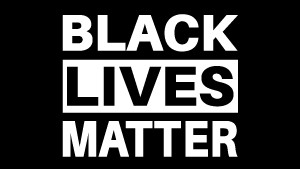
Do you have vivid memories of those dreaded group projects at school? Maybe you got lumped with the entire project, exhausted by your efforts to wrangle your wayward classmates. Or – be honest – maybe you were barely aware there was a project, but got away with it by bringing chocolate to the planning sessions. Whatever your style, working in groups has unique challenges and benefits. Many dog trainers run solo ventures, but that doesn’t mean collaboration isn’t possible. Working with other dog pros can add fuel to a range of projects, from running events and workshops, to joint marketing projects, to online education campaigns.
The key to making it work? Communication. Here are 5 essential conversations to keep your collaboration on track.
What exactly is the project?
With new ideas, it’s easy to rush in like an adolescent spaniel encountering a flock of seagulls – loads of energy, but lacking strategy. Enthusiasm is great (hold onto it!) but rigor around the project aims will keep everyone on track. Step one of successful collaboration is figuring out what success looks like, for both or all of you.
If you’re planning a workshop with another trainer, for example, is there a financial target or participation number that suits your businesses? Are there learning goals you want to achieve? Or a specific audience you want to reach? A shared understanding of what you’re trying to achieve (and why) will prevent misalignment and tension further down the track.
Who is doing what and by when?
This is a big one! Resentment can build if one person feels they are contributing more, or the other is being too controlling. That’s why defining and planning your projects is so important, particularly when it comes to breaking down tasks and setting deadlines. Make a list of what’s involved, including the time and resources required. Get specific here – ‘a few social media posts’ to promote a new service can end up being a full-time gig!
Draw on the strengths of everyone involved, and outline who will be taking responsibility for each area of the project, and when it will be done by. Which decisions should be shared, and which can be made by the individual taking on that role? If you’re in charge of bookings for a big online event, for example, letting an extra participant in above the limit may be no big deal. If you’re running a small class for reactive dogs, however, extra participants are likely to require some shared decision making. The final and most important step? Write it all down. It’s all too easy to say ‘yep I’ll do that’ and then forget when the tasks start stacking up.
How do you want to approach working together?
Successful collaboration isn’t just about getting the job done. It’s also about enjoying the process, learning from one another, and hopefully having some fun. Understanding how your fellow collaborator loves to work will help make this happen. Get curious about each other. Ask your colleague how they like to receive feedback, what irritates them when working in a team, and what helps them stay motivated.
This is also an opportunity to set some boundaries. Perhaps your early bird colleague has their best ideas during their 6am dog walk, and loves to share them immediately. For you, a voice note you can listen to as you crawl towards your morning coffee may be preferable to a phone call.
Plan a time-bound experiment
Once you’ve sussed out the project parameters and roles within it, it’s time to take action! Rather than pour everything in at once, particularly if it’s a new collaboration, choose a bite-sized starting point. If you want to start a podcast series about cooperative care, for example, choose the first topic and launch date, as well as how many episodes you’re aiming for in the first season. Open-ended projects lose steam quickly, feel overwhelming, and can sap your creativity.
The secret sauce: retrospectives
Retrospectives are a chance to zoom out and analyze how the project went. They generally involve a discussion about what went well, what was challenging, and what you would change next time. Dog trainers are busy and dynamic people – often problem-solving for themselves, their clients, and the dogs they’re trying to help. Stopping to reflect, assess, and plan can be challenging. Yet these steps are vital to healthy collaborations – without them, learning tends to stall and frustration builds. If you’re planning a project with a fellow dog pro, don’t treat retrospectives like an afterthought, or in response to something going wrong. Book them in as part of your early planning process.


